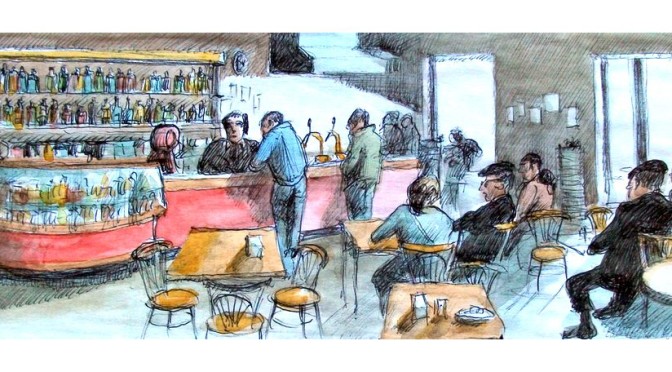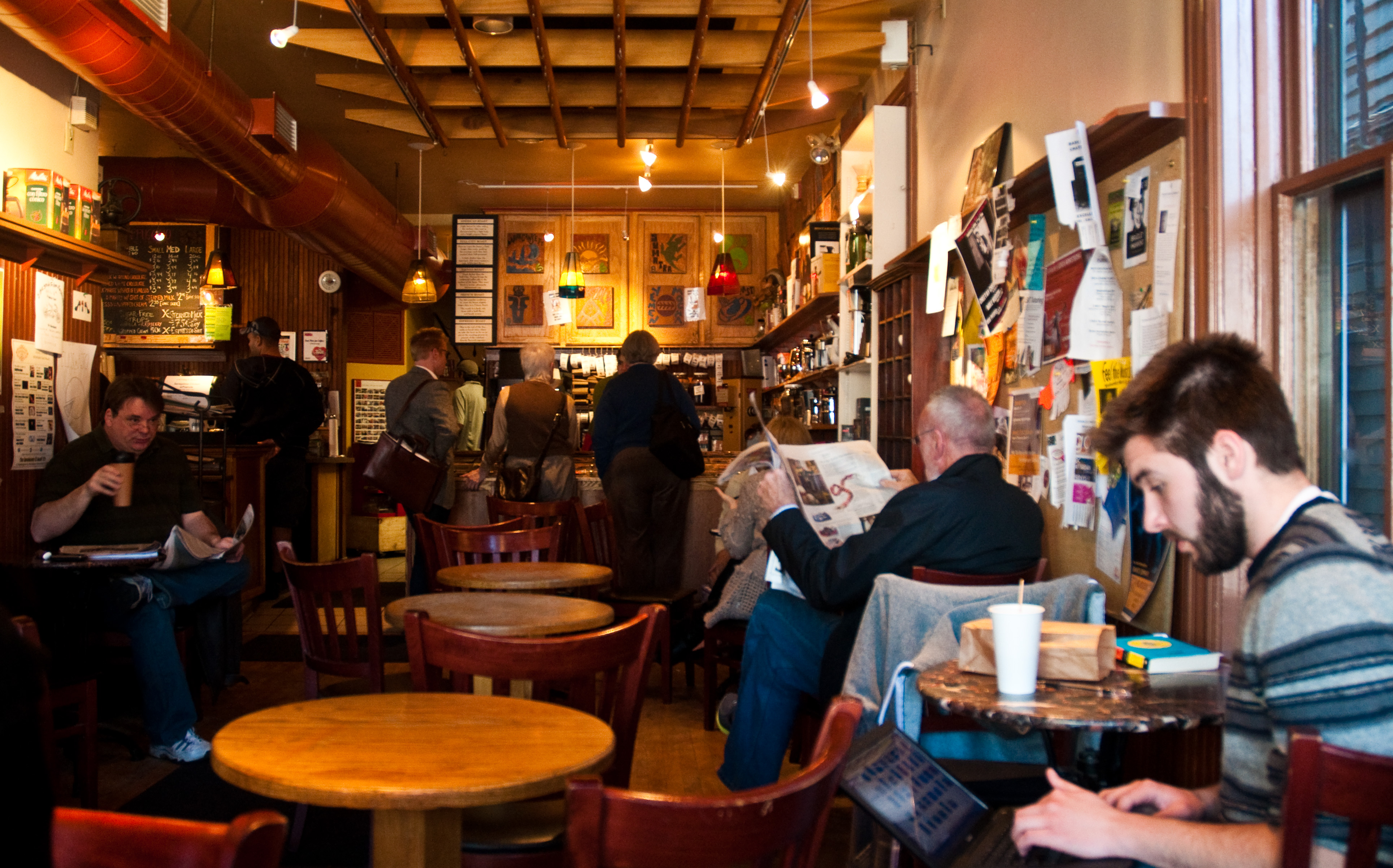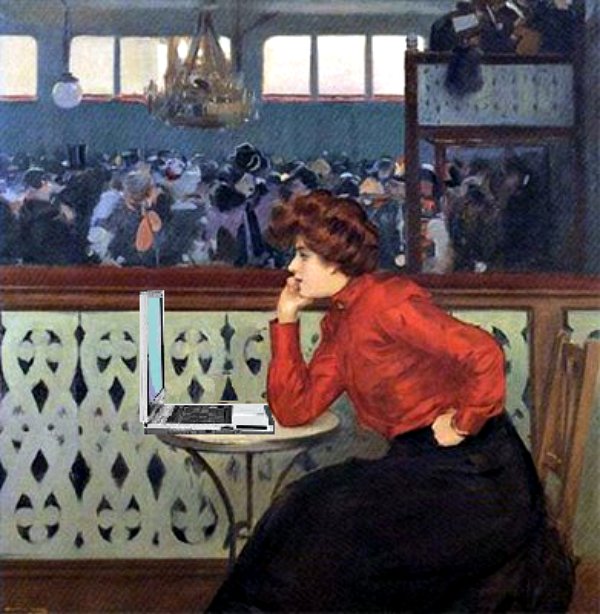It’s no secret that UCWbLers are proud of the new space we occupy in the SAC. With modern decor, ample, open seating, and a tech-friendly infrastructure, it’s a comfortable and inviting space. According to a new study, this interaction between work space and technology plays more of a role in the writing process than we think, and we should look more closely at how it affects our appointments.
Stacey Pigg, an assistant professor of writing and rhetoric and the University of Central Florida, recently studied the effect that mobile technology has on the writing process, specifically technology’s ability to redefine writing spaces. With the boom of mobile technology, she argues that writers have the freedom to create unconventional writing spaces. Her research has an impact on how we think not only of technology and the writing process, but also about the interaction with space.
One of the examples from Pigg’s case study came from an interview with a student who frequented a cafe on her college campus. The student originally chose to work in the cafe because it provided reliable WiFi, but eventually she had integrated the hum of conversation around her, the snacks from the bar, and the work tables around her into her writing process. Soon she found that she worked best in that environment at the cafe.
Pigg found that these informal public spaces “(served) as commonplace productive locations for many writers because they ground a delicate interactive balance, positioning composers to feel in control over their immediate social and material environment, which is crucial to balancing access to social resources with enough removal from them to focus” (Pigg 261). This feeling of empowerment is a key element of the writing process, and defining one’s writing space enables a writer to feel comfortable and focus on their work.
Mobile internet not only creates a world of newly accessible work spaces, but it also opens the door to a nearly infinite source of information. Although the constant interconnectedness with the online community can be valuable, it can also create distractions and stress for writers. Pigg acknowledges Jonathon Mauk’s argument that “students will never fully establish foundations in academic places and discourses because they are lured away by nonacademic places, information, and interactions” (253). Distractions online can encourage procrastination and dismantle students’ attempts to establish new work spaces.
Pigg argues however that further research on this subject can “suggest what factors lead mediated places to support effective composition in information rich cultures” (Pigg 255). Indeed, Pigg asserts that “researchers can also benefit from accounting for how virtual and material interfaces potentially work together to support composing” (Pigg 256).
I think in accordance with Pigg’s research, the UCWbL creates a tech-friendly space that utilizes the internet when appropriate, but also helps writers focus on their work. Many factors play into this atmosphere that is prime for writer productivity; tutor-writer and co-tutor collaboration, open and inviting decor, and access to online and print resources create an environment with the assets of both a cafe and academic-centered space.
These factors are important for tutors to keep in mind when approaching an appointment. Understanding the preferred work environment of our writers contributes to understanding the writer’s writing process. It also allows tutors to analyze how well technology fits into their own work environment.
Discover more from UCWbLing
Subscribe to get the latest posts sent to your email.




2 replies on “Mobile Technology and Creating Work Spaces”
I find it so fascinating how the environment affects our creative thought process. In psychology, I’ve examined factors such as orderliness and how clutter might actually inspire a breaking from convention–an essential component to creativity. I think this article is important because people often overestimate the dispositional factors involved with creativity and writing. People often feel that they need to be born creative, like J.K. Rowling, Salinger, or Mark Twain. But really, the environment impacts our focus and spontaneity of ideas so much. Personally, I feel the internet is a huge hindrance to my writing. With facebook/email tabs pulled up, I’ll often spend too much time worrying about frivolous matters rather than my writing at hand.
Such an interesting post! I definitely identify with the case study in this post, because I cannot write anywhere expect for in public spaces. The background noise coupled with the slight distraction of other people really puts me in the mood to work. Thanks to this post, I am better able to understand why.
I definitely have to agree with the idea that the writing center helps create a welcoming and open environment for the writers. But I think it would be interesting to look at the differences between the two different locations (Loop and Lincoln Park) and how those environments differ (or maybe are similar!)